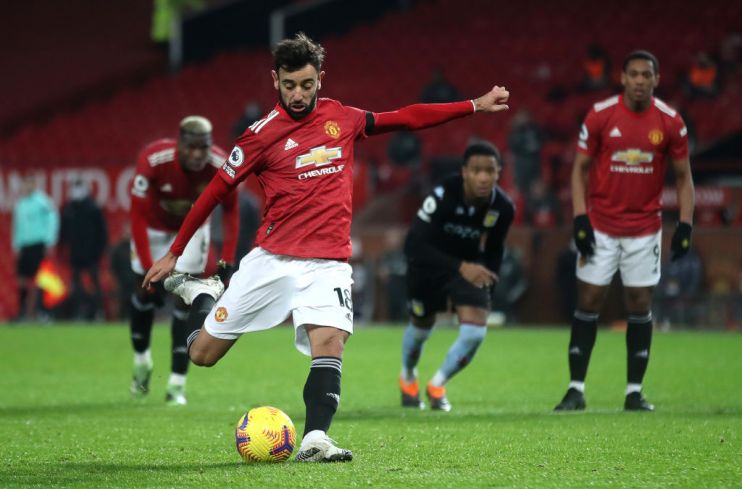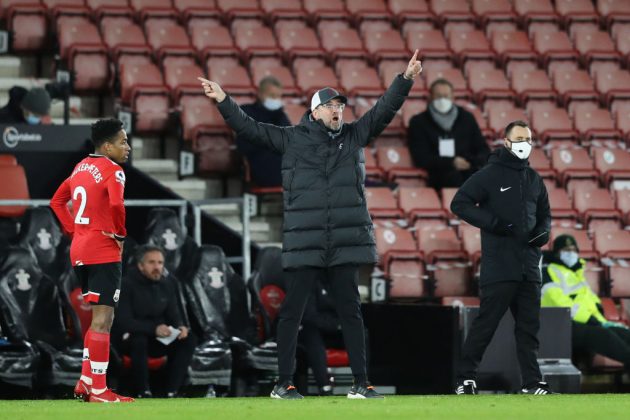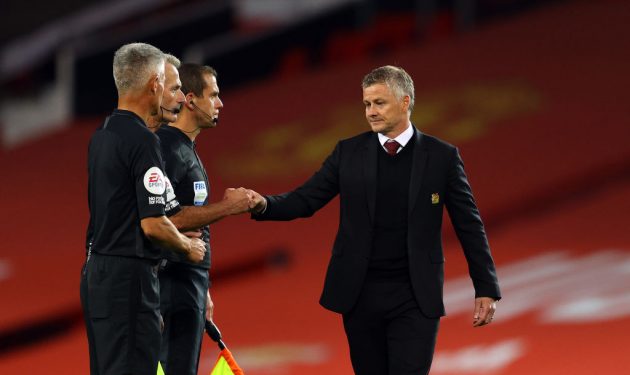Do Manchester United get more penalties or are Jurgen Klopp’s complaints just sour grapes?

Do Manchester United get more penalties than other teams in the Premier League?
And are Liverpool unfairly overlooked when referees dish out spot-kicks?
Those were two questions raised by Jurgen Klopp after his side lost at Southampton on Monday, leaving them level on points with United at the top of the Premier League.
“I hear that Manchester United had more penalties in two years than I had in five and a half years,” he said. “I’ve no idea if that’s my fault, or how that can happen.”
City A.M. has crunched the numbers to see whether Klopp has a point or if his complaints are just sour grapes.
Manchester United do get more penalties
Klopp is right to say United are awarded plenty of penalties.
Since the start of the German’s first season at Liverpool, 2015-16, United have had 42 penalties in the Premier League. Liverpool have had 30.
That trend is largely down to United’s extraordinary penalty windfall in the last two and a half seasons.
Since the start of 2018-19, United have been awarded 32 penalties. Liverpool have had 17, while the average for the league has been 13.1.
In fact, United led the Premier League penalty charts in both 2018-19 and 2019-20.
They received a remarkable 26 spot-kicks in that time, 11 more than the next best, Manchester City.
Liverpool are more efficient from the spot
Although United have been awarded many more penalties, they aren’t as good at converting them as Liverpool.
While they have received 12 more than Klopp’s men since 2015-16, United have only scored three more.
In fact, Liverpool haven’t missed a penalty in the league since 2017-18. United have failed to convert eight in that time.
So Klopp’s grumbles may be partly because he knows how useful penalties have proved to his side.

United are more reliant on penalties
Liverpool may be good at capitalising on the penalties they get but they are less dependent on them as a source of goals.
Only five of their 85 league goals last season came from the spot. The previous season it was seven out of 89.
That is in part because they have been so prolific.
United, by contrast, netted 10 penalties in 66 goals last term and nine in 65 the year before.
That equated to 15.2 and 13.8 per cent of their total goals respectively.
This season is the first of the period studied in which Liverpool’s proportion of penalty goals has reached double figures.
So what does all this mean?
Klopp is entitled to point out that United do get a disproportionate number of penalties – not just compared to them but to the whole league.
It hasn’t bolstered made much difference to their relative goal tallies, due to Liverpool’s greater efficiency from the spot.
But because United have scored fewer goals generally, those penalties have been more important to them than to Liverpool.
Coincidentally, Ole Gunnar Solksjaer replaced Jose Mourinho as United manager halfway through 2018-19.

But while the number of penalties United have won has shot up, their non-penalty goals have remained stable.
Solskjaer’s popular appeal is in part down to a perceived greater emphasis on attacking football than Mourinho.
Any credit Solskjaer receives for increasing United’s goal tally should, then, come with a footnote.
